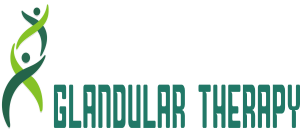Recognition of Prior Learning (RPL) is an assessment process that acknowledges the skills and knowledge that people have acquired by means of work, life experiences, and different non-formal schooling or training. RPL is a way to gain formal qualifications or credit for informal or non-formal learning. This means that individuals who have gained skills and knowledge via their work or life experiences can have these skills and knowledge recognized and used to realize formal qualifications.
The RPL process is designed to evaluate an individual’s current level of knowledge and skills, and to find out whether they meet the requirements of a particular qualification. This assessment process entails a range of activities akin to interviews, observations, and portfolio development. The aim of these activities is to collect proof of the individual’s knowledge and skills, and to find out whether or not they meet the standards set by the related business or professional body.
The RPL process just isn’t only useful for individuals, but additionally for employers and the wider community. Employers can benefit from having a skilled and qualified workforce, and the community can benefit from having individuals with the skills and knowledge to contribute to the workforce and community.
The RPL process will not be only useful for individuals, but in addition for employers and the wider community. Employers can benefit from having a skilled and certified workforce, and the community can benefit from having individuals with the skills and knowledge to contribute to the workforce and community.
RPL is particularly useful for people who’ve gained skills and knowledge by means of work or life experiences, but who would not have formal qualifications to back them up. These people may discover it troublesome to search out work, or to advance their careers, because they do not have formal qualifications. RPL provides a way for these individuals to gain formal qualifications and to have their skills and knowledge acknowledged by employers and the wider community.
To get recognition for prior learning, the first step is to determine the qualifications which can be most related to your skills and knowledge. This will be finished by researching totally different qualifications and talking to trade or professional bodies. After you have recognized the related qualifications, you may then start the RPL process.
The RPL process typically involves the following steps:
Put together a portfolio of proof: This is a group of documents and other materials that demonstrate your skills and knowledge. The portfolio will typically embody things like work samples, testimonials from employers or shoppers, and other proof of your skills and knowledge.
Meet with an RPL assessor: The assessor will review your portfolio of proof and ask you questions on your skills and knowledge. They will also observe you in a related setting, resembling at work, to see your skills and knowledge in action.
The assessor will then provide you with feedback in your portfolio of evidence and your performance within the interview and observation. They will additionally provide you with a report that outlines their assessment of your skills and knowledge.
The RPL assessor will then provide you with feedback in your portfolio of evidence and your performance within the interview and observation. They will additionally provide you with a report that outlines their assessment of your skills and knowledge.
If the assessor determines that you simply meet the requirements of the relevant qualification, you will then be awarded the qualification.
The RPL process can take a while, as it includes gathering proof, meeting with an assessor, and waiting for a decision. However, it is well worth the effort, as it can lead to a formal qualification and the recognition of your skills and knowledge.
In conclusion, RPL qualification is a superb way to gain recognition for the skills and knowledge that you’ve acquired via work or life experiences. It might assist you to seek out work, advance your career, or achieve credit
